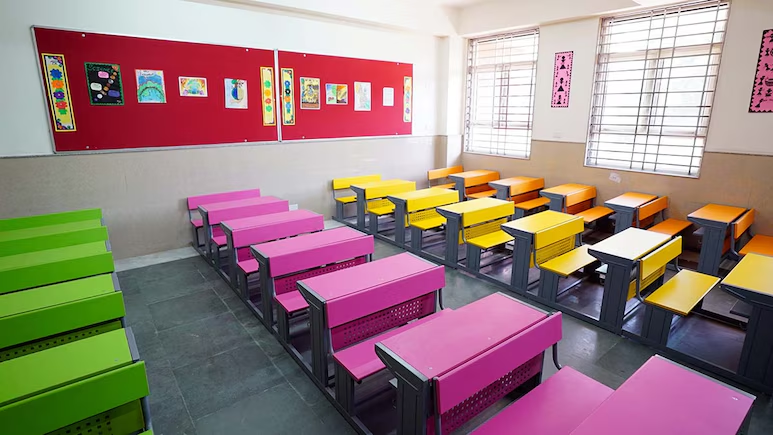
Classroom demonstration or interview will be an essential criterion for selection of teachers in schools, according to the new National Education Policy (NEP), which was launched on July 29.
“To gauge passion and motivation for teaching, a classroom demonstration or interview will become an integral part of teacher hiring at schools and school complexes,” it says.
“These interviews would also be used to assess comfort and proficiency in teaching in the local language, so that every school/ school complex has at least some teachers who can converse with students in the local language and other prevalent home languages of students,” it adds.
Teachers are selected through state teacher eligibility tests or the Central teacher eligibility test.
NEP has set new guidelines for improving these tests. “Teacher Eligibility Tests (TETs) will be strengthened to inculcate better test material, both in terms of content and pedagogy. The TETs will also be extended to cover teachers across all stages (Foundational, Preparatory, Middle and Secondary) of school education,” it says.
It has set B.Ed. degree as the minimum educational qualification for teachers. "By 2030, the minimum degree qualification for teaching will be a 4-year integrated B.Ed. degree. Stringent action will be taken against substandard stand-alone Teacher Education Institutions (TEIs)," the policy document says.
"A common National Professional Standards for Teachers (NPST) will be developed by the National Council for Teacher Education by 2022, in consultation with NCERT, SCERTs, teachers and expert organizations from across levels and regions,” it says.
On imparting teaching in local language, the policy aims to institute scholarships for job aspirants from rural areas. Through this it envisages that highly qualified teachers with proficiency in local language will be added to the teaching sector.
It also promises incentives for teachers in rural areas, especially in areas that are currently facing acute shortage of quality teachers. Incentives like housing facility in the vicinity or increase in the housing allowance will be among the major incentives that will be provided to those teaching in rural areas.
The NEP approved by the Union Cabinet at a meeting presided by Prime Minister Narendra Modi replaces the 34-year-old National Policy on Education framed in 1986, and is aimed at paving the way for transformational reforms in school and higher education systems to make India a global knowledge superpower.
